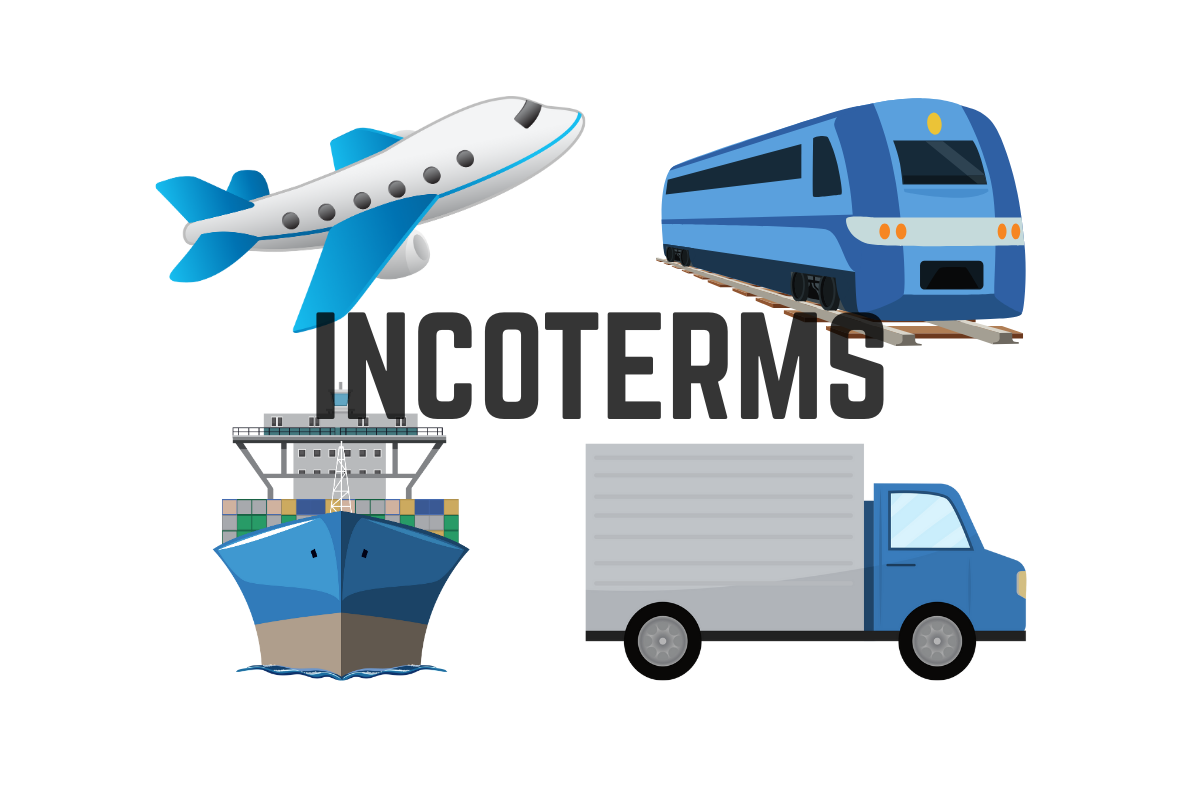The stakes are high when shipping goods across borders, and every detail counts. Enter Incoterms – those essential three-letter acronyms that dictate who does what in the realm of shipping logistics.
Whether you’re a seasoned exporter or new to international shipping, understanding these terms can mean the difference between smooth sailing and turbulent waters.
Introduction
What are Incoterms and why are they important for global shippers?
If you’re involved in cross-border trade, understanding Incoterms is crucial to your success. These terms serve as a universal language for parties engaged in global transactions, providing clarity and defining responsibilities from start to finish. But what exactly are Incoterms? And why do they hold such significance for shippers across the globe?
Today we’ll decode these essential terms and equip you with the knowledge needed to streamline your shipping processes while minimizing risks and costs. Whether you’re a seasoned shipper or just starting out, grasping Incoterms will empower you to navigate international trading with confidence.
For a more detailed breakdown of how Incoterms work and why they matter, the U.S. Department of Commerce offers a helpful guide: Know Your Incoterms.
Understanding the Different Types of Incoterms
Incoterms, or International Commercial Terms, are essential for global shippers. They define the responsibilities and risks of both buyers and sellers during cross-border transactions.
EXW (Ex Works) places the burden on the buyer right from the seller’s premises. The seller has minimal responsibility here.
FCA (Free Carrier) shifts some duties to the seller by requiring them to deliver goods to a designated carrier. This arrangement helps streamline logistics.
CPT (Carriage Paid To) means that while the seller covers transportation costs, risk transfers once goods are handed over to a carrier.
In contrast, CIP (Carriage and Insurance Paid To) adds another layer; it requires insurance coverage during transit for added security.
With DAT (Delivered at Terminal), sellers handle delivery until goods reach a terminal in the destination country.
DAP (Delivered at Place) is slightly more comprehensive as it ensures delivery right up to an agreed location without clearing customs.
Lastly, DDP (Delivered Duty Paid) puts maximum obligation on sellers—they bear all costs including duties until delivery is complete at buyer’s doorstep.
EXW (Ex Works)
EXW, or Ex Works, is one of the simplest Incoterms. It places minimal responsibility on the seller. With EXW, the seller makes goods available at their premises or another named location. From that point onward, all risks and costs shift to the buyer.
Buyers must handle transportation from the seller’s location to their desired destination. This includes loading fees and export duties if applicable.
For businesses new to cross-border shipping, EXW can be an attractive option due to its straightforward nature. However, it requires buyers to have a good grasp of logistics and customs procedures in both countries involved.
Choosing this term means you take control but also assume more risk during transit. It’s essential for buyers under this arrangement to ensure they are prepared for potential challenges ahead—especially when crossing borders.
FCA (Free Carrier)
FCA, or Free Carrier, offers flexibility in international shipping. It allows sellers to deliver goods at a specified location, typically their premises or another designated place.
Once the seller hands over the goods to the carrier chosen by the buyer, responsibility shifts. This means that any costs and risks associated with transportation now fall on the buyer.
The FCA term is particularly useful for complex supply chains where multiple parties are involved. It provides clarity regarding who is responsible at each stage of delivery.
For shippers looking to streamline their logistics processes while ensuring transparency, FCA can be an ideal choice. It’s essential for both buyers and sellers to understand their obligations under this Incoterm fully.
CPT (Carriage Paid To)
CPT, or Carriage Paid To, is a pivotal Incoterm for global shippers. Under this term, the seller takes on the responsibility of paying transportation costs to deliver goods to a designated destination.
The seller arranges and covers freight charges until the cargo reaches that point. However, once it arrives at the agreed location, risk transfers to the buyer. This means that if any issues arise during transit after reaching the destination port, it’s up to the buyer to handle them.
Using CPT can simplify logistics for both parties involved. It allows sellers to control shipping arrangements while providing buyers clarity about their obligations post-delivery.
Choosing CPT as your Incoterm can also streamline negotiations and contracts in cross-border transactions. It defines clear responsibilities and helps avoid misunderstandings later in the shipping process.
CIP (Carriage and Insurance Paid To)
CIP, or Carriage and Insurance Paid To, is a critical Incoterm for global shippers. It indicates that the seller covers both shipping costs and insurance until the goods reach a specified destination.
With CIP, sellers take responsibility not only for transporting the cargo but also for ensuring it against potential loss or damage during transit. This offers buyers peace of mind, knowing their shipment is protected.
Under this term, once the goods are loaded onto the carrier at an agreed point, risk transfers to the buyer. However, sellers must arrange and pay for transportation and insurance until they reach the destination city.
This balance of responsibilities makes CIP particularly appealing in cross-border transactions. Buyers can focus on other aspects of their business while relying on sellers to manage logistics efficiently. The clarity provided by this term simplifies international trade relationships significantly.
DAT (Delivered at Terminal)
DAT, or Delivered at Terminal, is a crucial Incoterm for global shippers. It specifies that the seller fulfills their obligation once the goods are unloaded and made available at a designated terminal in the buyer’s country.
This term applies to various modes of transport, making it versatile for cross-border transactions. Sellers must handle all costs and risks up until delivery at the terminal. This includes export duties, transportation fees, and unloading expenses.
Buyers take over responsibility from that point onward. They manage customs clearance and any further transport needed to reach their final destination.
Using DAT can simplify logistics for both parties by clearly defining where ownership transfers occur. For businesses looking to streamline their shipping processes while minimizing risk exposure, this Incoterm offers an effective solution in international trade.
DAP (Delivered at Place)
DAP, or Delivered at Place, is a popular Incoterm that simplifies responsibilities for both the seller and buyer in cross-border transactions. Under this term, the seller takes on significant obligations by delivering goods to a specified location ready for unloading.
This means that all costs related to transportation and risk transfer fall squarely on the shoulders of the seller until the items reach their designated destination. The buyer’s role begins once they have possession of the goods.
One key advantage of DAP is predictability in shipping arrangements. Sellers can effectively manage logistical elements while buyers enjoy less hassle during customs clearance at their final destination.
However, it’s crucial for both parties to clarify delivery points and potential additional charges beforehand. Misunderstandings can lead to unexpected expenses or delays in receiving shipments. Familiarity with DAP ensures smoother operations across borders.
DDP (Delivered Duty Paid)
DDP, or Delivered Duty Paid, places the maximum responsibility on the seller. Under this term, the seller handles all costs and risks associated with delivering goods to a specified destination.
This includes not just transportation fees but also customs duties, taxes, and any necessary clearances. The buyer can rest easy knowing that they won’t face unexpected charges upon arrival.
In cross-border trade, DDP simplifies transactions significantly. Sellers must be well-versed in local regulations to avoid delays or penalties. Understanding these nuances helps in smooth deliveries.
For buyers eager for transparency and predictability in shipping costs, DDP is often an ideal choice. They know upfront what they’ll pay without hidden surprises later on at delivery points.
However, it’s crucial for sellers to comply with international laws when using DDP to ensure seamless operations across borders.
How Do Incoterms Affect International Shipping Costs?
Incoterms play a crucial role in determining the costs associated with international shipping. These terms clarify responsibilities between buyers and sellers, influencing who bears various expenses along the supply chain.
For instance, under EXW (Ex Works), the seller has minimal responsibility for transportation costs. The buyer must cover all expenses from pickup to delivery. This can lead to significantly higher costs if not managed properly.
Conversely, DDP (Delivered Duty Paid) places more financial burden on the seller. They are responsible for all shipping fees and import duties until goods reach their destination. While this may seem favorable for buyers, it requires careful pricing strategies from sellers.
Understanding these nuances helps businesses budget accurately and avoid unexpected charges during cross-border transactions. Each Incoterm brings its own cost implications that shippers need to navigate effectively for optimal financial planning.
The Role of Incoterms in International Trade
Incoterms play a pivotal role in international trade contracts by clearly defining the responsibilities of buyers and sellers. These terms set the stage for logistics, costs, and risk management.
When parties engage in cross-border transactions, ambiguity can lead to disputes. Incoterms eliminate confusion about who covers shipping fees or insurance. This clarity fosters smoother negotiations.
Moreover, using standardized terms helps streamline processes across various jurisdictions. Companies can navigate complex regulations with greater ease when they understand their obligations under these internationally recognized rules.
In essence, incorporating Incoterms into contracts not only protects both parties but also enhances trust in global trade relationships. It’s an essential tool for any business looking to expand its reach beyond borders while minimizing potential risks associated with shipping goods worldwide.
Tips for Choosing the Right Incoterm for Your Business
Choosing the right Incoterm is crucial for your business’s success in cross-border trade. Begin by assessing your shipping capabilities. If you have a strong logistics network, options like FCA or DDP may suit you well.
Consider risk management too. Some Incoterms place more responsibility on the seller, while others shift it to the buyer. Understanding who bears these risks can influence your selection.
Evaluate costs carefully. Different terms impact transportation expenses and insurance needs significantly. A term like CIP might offer peace of mind with included insurance but could be pricier upfront.
Communication plays a vital role as well. Ensure all parties involved are clear about their responsibilities under chosen terms to avoid misunderstandings down the line.
Lastly, stay adaptable; market conditions change rapidly in global commerce, so being open to reevaluating your choices is key for ongoing success.
Common Misunderstandings of Incoterms
Many shippers struggle with Incoterms due to the complexity of their definitions. A common misunderstanding is assuming that all terms apply universally without considering specifics. Each term has unique obligations for both buyers and sellers.
Another frequent error is thinking that Incoterms dictate shipping costs entirely. While they establish responsibilities, actual freight charges can vary based on numerous factors like carrier rates or destination fees.
Some believe that Incoterms cover customs duties and taxes automatically. This isn’t the case; certain terms only address delivery aspects, leaving other expenses up to parties involved.
Furthermore, many people use outdated versions of these terms. The International Chamber of Commerce updated them in 2020, yet some still reference older editions, leading to confusion in transactions.
Understanding these nuances ensures smoother cross-border trade and minimizes disputes between trading partners.
The Importance of Understanding
Understanding Incoterms is crucial for any business engaged in cross-border trade. These terms serve as a universal language that simplifies shipping processes by clarifying the responsibilities of buyers and sellers. Knowing which Incoterm to use can prevent misunderstandings, reduce costs, and streamline logistics.
Partner with Experts Who Understand the Language of Global Trade
Navigating Incoterms doesn’t have to be complicated, especially when you have a trusted logistics partner by your side. At Native American Logistics, we specialize in simplifying international shipping for our clients, ensuring every term, condition, and responsibility is clearly defined and expertly managed.
Whether you’re moving freight across borders or streamlining your global supply chain, our team is here to guide you every step of the way. Ready to take the guesswork out of global logistics? Contact us today to learn how we can help you optimize your international shipping operations.

Jeff Berlin
is the Chief Operating Officer of E.L. Hollingsworth & Co. and serves as the Senior Operations Executive for TOP Worldwide and Native American Logistics. With over 30 years of experience leading logistics and trucking companies, he brings deep industry expertise to his role. Jeff is also a CDL-A driver and a private pilot. Contact Jeff at jberlin@elhc.net.
 +1 877 781 3006
+1 877 781 3006 (52) 554-870-5682
(52) 554-870-5682




